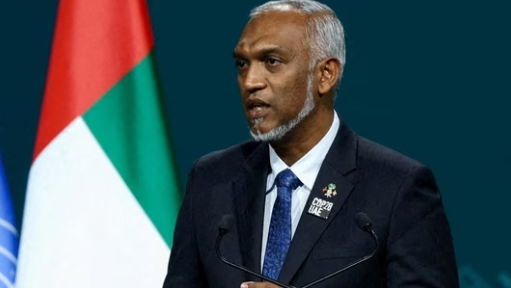The President of the Maldives, Mohamed Muizzu, has spoken out about the recent diplomatic tensions with India, asserting the island nation’s commitment to sovereignty and an independent foreign policy.
In a press conference held in the capital city of Malé, Mohamed Muizzu addressed the concerns and speculations surrounding the strained relationship with India. The President emphasized that the Maldives is not positioned in anyone’s backyard and, therefore, is entitled to shape its foreign policy without succumbing to external pressures.
The diplomatic row between the Maldives and India has been brewing in recent weeks, with disagreements arising over various issues, including trade, regional influence, and geopolitical alignments. Despite historical ties and geographical proximity, Mohamed Muizzu made it clear that the Maldives remains steadfast in its pursuit of an independent and balanced foreign policy.
The President stated, “We appreciate our relationships with neighbouring countries, including India, but it’s essential to understand that the Maldives is a sovereign nation with its interests and priorities. We are not in anyone’s backyard, and we will make decisions that align with our national objectives.”
While Mohamed Muizzu did not delve into specific details of the disagreements, the remarks signal a determination to assert the Maldives’ autonomy in foreign affairs. The government’s stance reflects a growing trend among smaller nations to safeguard their interests in an ever-changing geopolitical landscape.
The Maldives has traditionally maintained a neutral and non-aligned foreign policy, but recent geopolitical shifts in the region have prompted leaders to reassess their positions. The President’s comments are likely to fuel discussions not only within the Maldives but also on the international stage.
As tensions persist, it remains to be seen how both nations will navigate the challenges and find common ground. The diplomatic discourse underscores the complexities of maintaining relationships in a region marked by diverse geopolitical interests.








 India
India











